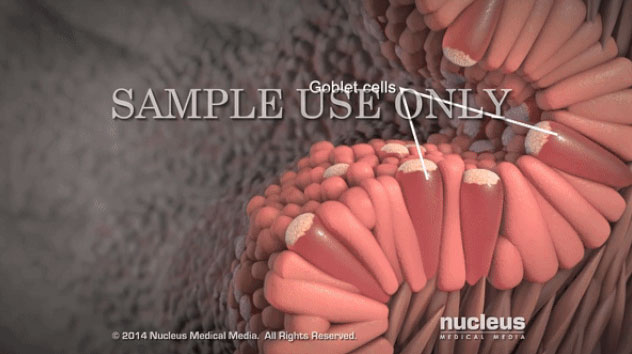Close-up of the formation of this type of cancer stems from the habit of eating Vietnamese people often
Vietnamese people's habit of abusing alcohol and liking sour / salty foods is one of the main causes of esophageal cancer. Frequent choking on the neck, difficulty swallowing food are the first obvious symptoms of this cancer.
The esophagus is the first segment of the gastrointestinal tract about 25 cm long, which carries food from the stomach to the stomach. The inside of the esophagus is lined with flat and flattened cells called squamous cells. Below the squamous cell layer are cells that continually divide and flatten to become new squamous cells, replacing the dead or flaky old squamous cells.
In case you have gastroesophageal reflux disease, acid in your stomach will often back up into your esophagus. If this pathology persists for a long time, the acid causes the squamous cell layer in the lower part of the esophagus to be replaced gradually by gland cells that are able to secrete mucus.

The formation of Barrett esophagus.
A change in the lining of a cell lining leads to a condition called esophageal Barrett (precancerous esophageal cancer). Esophageal adenocarcinoma can arise from the lining of esophagus Barrett itself. Another type of esophageal cancer called squamous cell cancer, occurs in the squamous cell layer in the esophagus.
As with other cancers, esophageal cancer occurs when genetic material is damaged or abnormal, inside the cell, causing them to grow out of control.

Esophageal adenocarcinoma can arise from the lining of esophagus Barrett itself.
Malignant tumors will gradually form as these abnormal cells multiply. Over time, the tumor will grow larger and protrude over the esophagus wall. In the early stages of esophageal cancer, the patient has almost no symptoms. However, when the tumor size is large enough, the patient will begin to have trouble swallowing food, as well as choking on the neck.

When the size of the tumor grows large enough, the patient will begin to have problems swallowing food, as well as choking on the neck.
The blockage of the esophagus in the esophagus makes it difficult to eat and results in a rapid drop in body weight. Depending on the location of the tumor, the patient may also have chest or neck pain.
When diagnosed with esophageal cancer, surgery, chemotherapy and radiation therapy are methods that will be used to treat it.
Surgery is the most common treatment for esophageal cancer, especially in the early stages of the disease when the tumor is still small. In this case, the doctor will remove the part of the esophagus where the tumor appears, as well as healthy tissue adjacent to the top and bottom. In some cases, the doctor will also remove a part of the stomach. Finally, the remaining healthy esophagus and stomach are connected. Often, some lymph nodes in the vicinity of the tumor will also be removed to check if the cancer cells have invaded.

Surgery to remove esophageal cancer.
In the case of a large tumor or to shrink the tumor before surgery, chemotherapy will be used. With this method, the drugs will stop the cancer from invading. Slowing or stopping the growth of cancer cells.
Radiation therapy is often used to complement chemotherapy. With this method, the radiation will destroy the genetic material of cancer cells, thereby destroying cancer cells.
The principle of radiotherapy and chemotherapy is to attack rapidly growing, dividing cells (a characteristic feature of cancer cells). However, because some types of cells in the body share the same trait, such as intestinal epithelial cells, bone marrow cells, or hair follicles, they are also damaged despite being healthy, thereby causing Side effects of chemotherapy as we often see them.
- Vietnamese people eat and drink "in touch" easily, which can cause infections and stomach cancer
- The main cause of diabetes in Vietnamese people
- Vietnamese people eat and drink together and are susceptible to infection causing stomach cancer
- Forming a habit takes how long?
- Eat rice soup - the wrong habit that few people pay attention to
- What is the harm of eating sweet food and how to quit this bad habit?
- Personality through blood type
- Eating betel nuts increases the risk of throat cancer
- Why are more and more young Vietnamese suffering from cancer?
- New research reveals that taller people are more likely to get cancer
- Eating too many of these things can cause cancer to form 100 times faster
- Eating alone is really harmful?
- Want to avoid the second most dangerous cancer in Vietnam, remember this eating habit
- 5 Abstain taboo of people with cancer
 Why is Australia the country with the highest cancer rate in the world while Vietnam ranks 100th?
Why is Australia the country with the highest cancer rate in the world while Vietnam ranks 100th? New drug causes cancer to 'starve'
New drug causes cancer to 'starve' Common cancers in men
Common cancers in men America's incredible discovery: The most feared cancer cell is love
America's incredible discovery: The most feared cancer cell is love